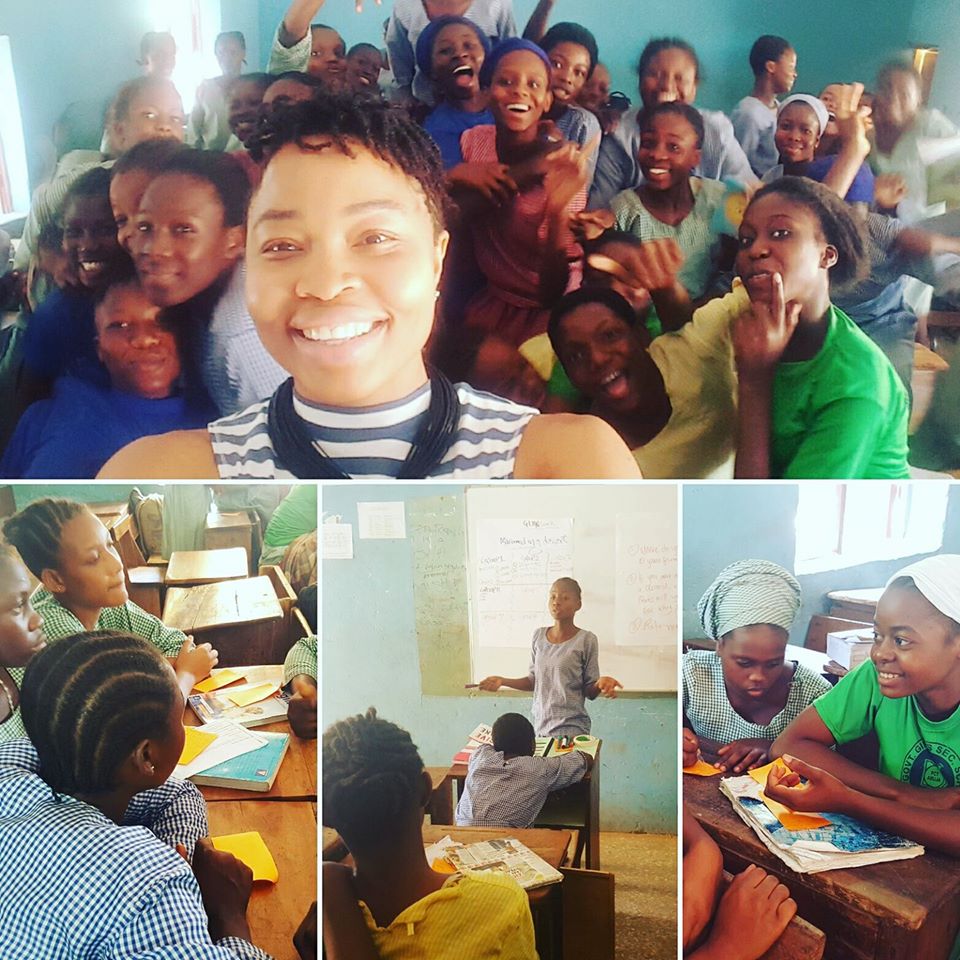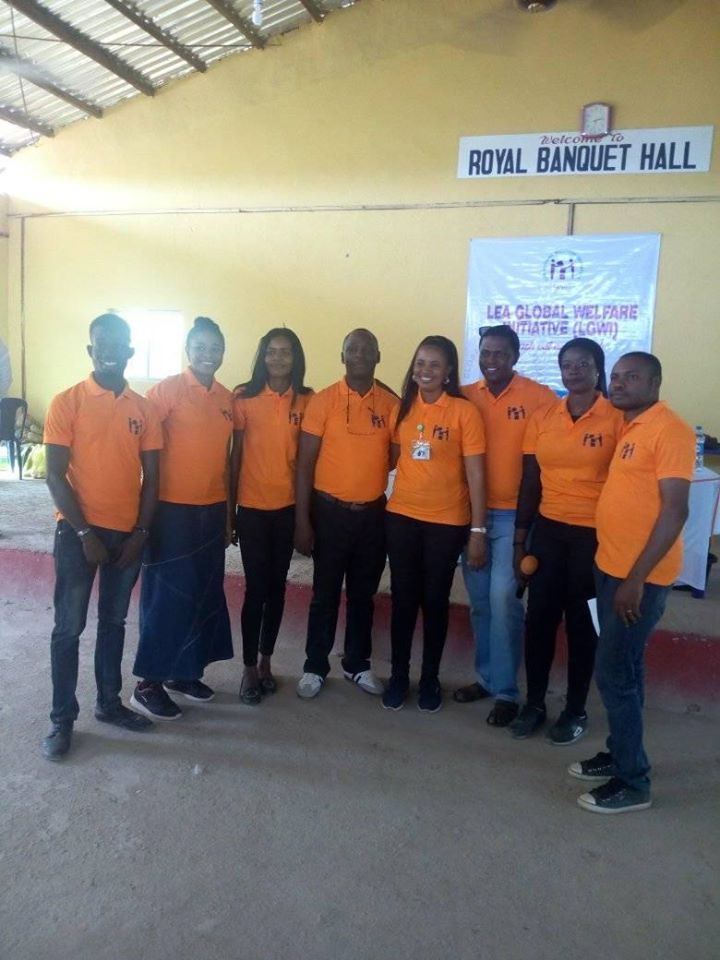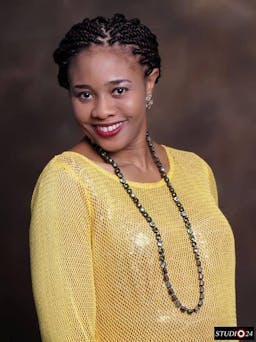DISCOVER THE LEADER IN HER
Feb 1, 2020
Story


“The young shall grow,” this is one of those promising quotes my mother would share with us kids any time she wanted to make reference to the future of our country, Nigeria.
Once she says it, I would feel a sense longing to see how I would turn out when I eventually grew up.
But I never took time to assess what it meant to grow up. For me it was about puberty setting in so I would no longer be called a little girl but a woman.
But I find that growing up is a lot deeper because It’s about listening, learning and leading.
These three elements cannot exist without one driving force; education.
The famous Scientist, Albert Einstein said;
“Wisdom is not a product of schooling but of the lifelong attempt to acquire it.”
Education in the 21st Century has gone beyond the four walls of a classroom or the teacher-student communication.
Education is about seeing knowledge in everyday life and using it to discover how to make the world a better place.
The United Nations (UN) has taken time to address the importance of education not only because it is the right of citizens but that it is a key element for promoting the Sustainable Development Goal 4 (SDGs).
Antonio Guterres (United Nations Secretary-General) says the 2030 goal target;
“aims to ensure inclusive and equitable quality education and promote lifelong learning opportunities for all.”
This goes to show how important it is too fast track education in the 21st Century especially as according to the United Nations analysis,
About 265 million children and adolescents around the world do not have the opportunity to enter or complete school; 617 million children and adolescents cannot read and do basic math; less than 40% of girls in sub-Saharan Africa complete lower secondary school education and some four million children and youth refugees are out of school as we speak.
It is clear to see that the lacking in education has a high rate especially in sub-Saharan Africa.
Further figures according to UN show that;
An estimated 50% of out-of-school children of primary school age live in conflict-affected areas especially in Africa.
In Nigeria, 20 years ago it was estimated according to education analysis that,
There were 19.5 million primary school age children in Nigeria. Of the total numbers estimated, 15.7 million were reported to be in school and the remaining 3.8 million were on the streets. There are regional disparities between the Southern and Northern zones with regard to enrollments. The enrollments were as high as 95% in Southern zones and as low as 19.91% in the Northern zones.
In 2018, according to United Nations International Children’s’ Emergency Fund (UNICEF);
With a growing population of over 195 million people, no less than 10.5 million are currently out of school. This is a world’s highest number where 60% of these children come from northern Nigeria (conflict-affected areas) and another 60% are girls.
This proves without a shadow of doubt that education especially for the girl child is still an issue of grave concern.
This year, the International day of education which is commemorated every January 24, chose to center its theme on “learning for people, planet, prosperity and peace.”
This theme slides through the different issues affecting the world told from human conflict, climate changes, economic degradation right down to corruption and terrorism.
It calls for all hands on deck in terms of development and global recovery where gender gaps are bridged. Girls need to be encouraged and supported towards becoming strong change agents for their world.
This is the time where education needs to go beyond the formal tutelage so the young girls can see and be involved in decision-making processes.
Greta Thunberg is a 17 year old Swedish environmental activist who stands for what young girls today need to possess; confidence, passion and drive.
It is not about what she learnt in the classroom but about her passion to acquire knowledge by observing her environment.
Greta is not a PhD graduate but she possesses a unique environment education that the classroom cannot provide for her.
She is a leader in the making and this is what the International day of education is all about. Seeking for the passion in the child and discovering the leader within.
This is where schools, organizations and non-governmental organizations need to help the young girls and women discover themselves through their environment and skills acquisition either digitally or manually.
As a member of the Lea Global Welfare Initiative (LGWI), (a non-governmental organization targeting global issues) one of our major projects flagged for 2020 is the “teach to fish” where we bring together women especially widows who have no source of livelihood.
We engage them into learning something new like catering, dress-making, farming, carpentry, electrical works and so much more. Informal education helps these women become self-sufficient and independent.
The Girl Lead Hub Network is another body doing amazing work in Nigeria where they meet young girls in schools, educating them on becoming potential leaders for their society.
This is not your usual formal education, but an informal approach used to make these girls feel bold enough to talk, share and learn.
Bella Anne Ndubuisi who is a mentor to hundreds of girls through this Network, remains a powerful voice for good governance, leadership and global shaping. This is her passion.
Clearly, the mission to educate is never ending because education on its own is a lifetime activity. We learn every day in many different ways.
The goal is to be the voice to those girls who have no one to teach them. There is need for more impact in education and less stereotyping as to what education must be.
A woman who has years of experience as a mechanic (works on cars) should not be looked down on over a woman who holds a degree certificate.
They are all educated in their own field and above all they are leaders in their own right.
https://youtu.be/yvo3PGjKNzA




